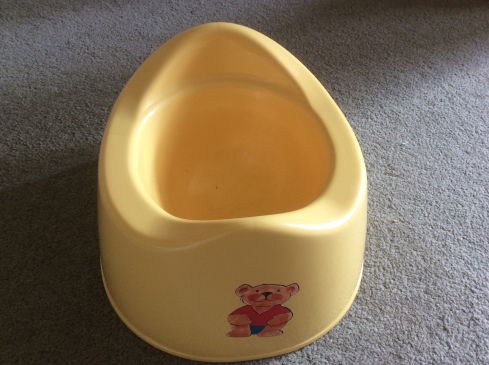.

The word “discipline” originates from the Latin word disciplina which means “instruction” and derives from the root discere which means “to learn.” The word discipulus which means “disciple or pupil” also stems from this word. So in a very fundamental sense, discipline can be considered systematic instruction given to a disciple. Discipline does not have to imply punishment.
Discipline works best when it’s tailored to suit the age and accommodate any special needs each child may have. For example, a toddler has no impulse control and little empathetic development so should not be expected to be capable of sharing and waiting long periods or sitting still. Furthermore, Children who have sensory processing issues should not be expected to be capable of remaining still and calm in unfamiliar and busy environments, also around crowds of people.
Behind every behaviour is an unmet need.
Every child’s ‘bad’ behaviour reflects an unmet need with a positive intention of fulfilling that need. Crying and winging don’t just happen because a child is deliberately trying to upset their parent, rather it is a form of communication to let the parent know that something is out of balance and they need help to fix it. Often the imbalance may even be a reflection of the parent’s mood or behaviour so self-reflection is a great practice to engage in should you wish to get to the root of your child’s behavioural issue. In times of meltdown I always check in with my own feelings and wellbeing before I continue to talk with my child about what’s going on in his mind.
Equality does not mean the same but does include respect. Respect is shown in many ways, the way we communicate being one of the most important when it comes to building strong relationships with others. Non-violent communication is a method of resolving conflicts and disputes in a respectful manner. You can find out more about the nvc formula of effective communication here…..Nvc
Positive discipline sees the child as an equal human being who deserves the same respect as you would give another adult. At the same time, positive discipline seeks to move away from exerting power over a child, instead coming from a position of authority to guide, discuss and compromise in order to find a solution that respects the needs of everyone involved.
No shaming or coercion.
Positive discipline does not use punishment (physical or mental), rewards, shame or bribery as a method to deter or control unwanted behaviour. Naughty steps are never used, instead the adult is encouraged to take time out and come back when they are calm enough to speak rationally and respectfully with their child.

Examples of unmet needs: stimulation/boredom, tiredness, overstimulation, hunger, lack of connection, sadness, stress
Let me illustrate some of these principles with a basic example: my children find the bag of flour in the kitchen cupboard and want to play with it so begin throwing some over the floor. Instead of saying ‘no you can’t do that’ I find a yes to go with that no, identify the unmet need and also give an explanation to go with it. ‘No you cannot throw flour inside because it will be difficult to clean up on the carpet but you may play with it in the garden’ (unmet need = lack of mental stimulation and the need for messy play and exploration).
Discipline for 0-3years: Avoid saying no too much, instead distract.
With toddlers and pre-school aged kids, distraction may also be a useful tool to manage negative behaviour just so long as the adult does not use it to suppress the child from releasing their emotions. Validate feelings when a child is angry, upset or sad by saying what you see again e.g. We must go home now for dinner, I see you are sad that you can’t stay and play longer’ and then offer a choice if possible e.g. ‘Would you like to pick the slide, the swings or the climbing frame as your last thing to play on before we leave?’
Motivating your child to be their best.
The problem with the use of Rewards to encourage good behaviour is that they only work on the principle of extrinsic motivation ie. ‘If you do X then you will receive Y’. This method inhibits intrinsic motivation which is an inner desire to help for the sake of feeling good. With extrinsic motivation the child comes to always expect something in return for his or her co-operation, with intrinsically motivated kids, they need only to understand the reasoning behind the request rather than be bribed. Bribery is very different to giving occasional treats though. Treats can be offered without condition for exceptional behaviour or achievements such as helping someone out in need or courageously making it through a traumatic time.
Saying well done in an effective way.
Praise can be good but also can be negative, especially if it’s overuse results in the child becoming dependent on it to fuel their self-esteem. Often it’s better to ask the child how they feel about their achievement rather than just giving your opinions. Praise is fine on occasion but so long as it’s not empty praise statements, lacking specifics such as ‘good boy’ or ‘good job’. We must explain to kids what they are doing well and describe our observations without focusing on the outcome but the effort instead e.g. ‘I see that you found climbing that net really tough but you didn’t give up!’
It’s not you I don’t like, it’s your behaviour.
When you are discussing issues with your child try to label the behaviour, not the child. Behaviour can be changed but a personality quality cannot. E.g ‘you acted irresponsibly when you ran across the road without stopping’ rather than just ‘you were naughty crossing the road like that’.
Do we have rules?
Of course we do, our rules are mutually agreed on and follow basic courtesy for other beings. Every family must decide what rules are important for them. Here are some of ours:
*Take shoes off inside the house.
*Do no harm to others.
*Respect other people’s needs, property and boundaries.
*Allow others to sleep in quiet, if you need to make noise then go somewhere else.
Do we set limits?
We follow a child-led, unschooled approach to lifestyle. We feel strongly that limits should not be set on issues such as bedtimes, food intake and choice and screen time. We wish for our children to learn to listen to their own body’s needs over someone else’s ideas of what is appropriate for them. This way we believe they will not lose touch with their own wellbeing e.g. hunger and tiredness cues. I do admit that screen time has been the most uncomfortable issue for us as we are great nature lovers. Technology does have a lot to offer in terms of learning opportunities but also has a downside of restricting a child’s movement, interaction with others and exposing them to electromagnetic pollution. Despite this we have found that as long as we continue to offer a range of activities and social opportunities, our son regulates his own screen time quite nicely.
Of course we all falter when it comes to implementing our ideals but the important thing is that we always try to catch our mistakes and become aware of how to move forward in a positive and peaceful direction. If we want to build a relationship of mutual respect with our children well into adulthood then we must start now, for our children’s sake and ours too.
For more info on these topics please visit my posts on mom.me
https://mom.me/toddler/33843-why-i-let-my-kids-pick-their-own-bedtimes/
https://mom.me/kids/little-kid/33410-i-let-my-kids-eat-whatever-they-want/









